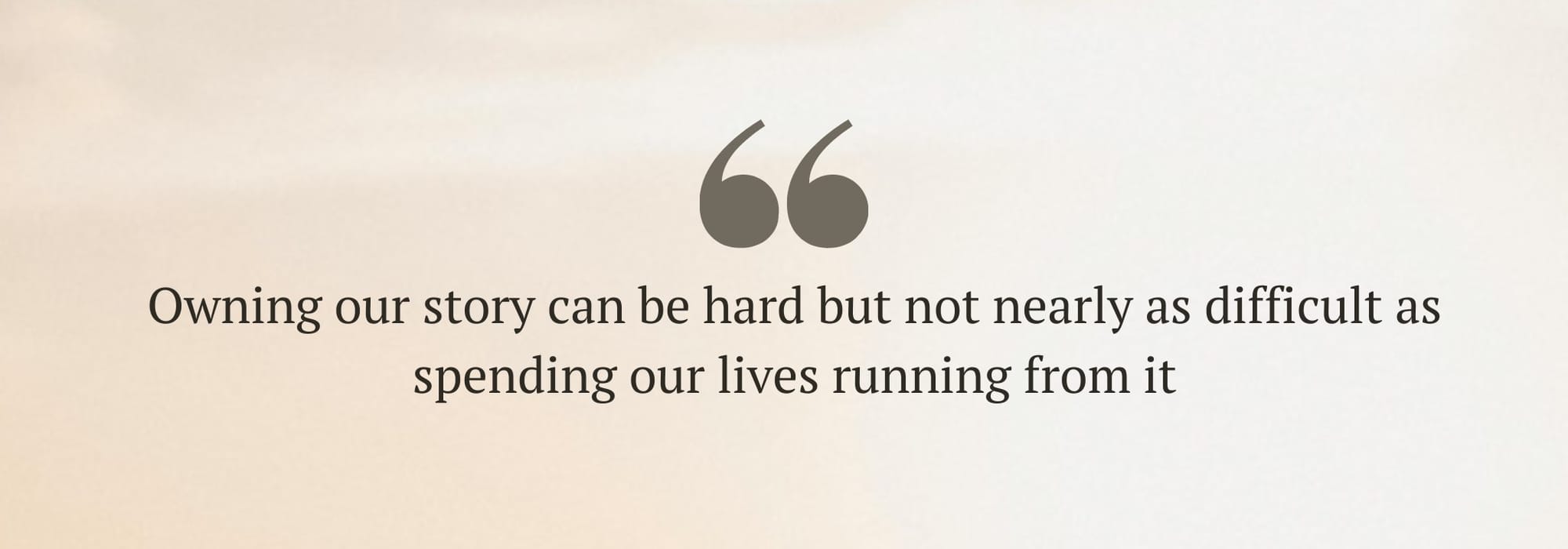We react better to others baring their souls than ourselves, so how does this impact our relationships?
I will own that I have a nervousness about sharing. Except with a very select group of people, I have noticed I won’t admit being scared, hurt, or struggling until I am in a situation where someone else has shown their vulnerability first. I’m then happy to share, but it is often couched in terms of “I feel that too.” I have a tendency to hold back until someone else has stepped forward. I feel relieved by vulnerability in others and closer to them when they share, but I feel embarrassed – almost squeamish – about it in myself.
A now famous series of seven studies carried out at the University of Mannheim, and published in the Journal of Personality and Social Psychology, revealed that participants tended to think that showing their own vulnerabilities would make them appear ‘weak and inadequate’. However, the ‘beautiful mess’ effect kicked in when they spoke of others’ vulnerability, finding it endearing and even desirable.
We find vulnerability attractive even in people we don’t know personally. Author Katherine May wrote on Substack about Sinéad O’Connor and “the vulnerability industry” after the singer’s death in July 2023. As someone who has also “worn her heart on her sleeve” through her books, Katherine writes: “Vulnerability sells, and it adds a bankable ring of authenticity to boot.”
Professor Anna Bruk is Chair of Cross-Cultural Social and Personality Psychology at the University of Mannheim, and one of the authors of the initial studies mentioned. So, when the opportunity to discuss vulnerability with her arose, naturally I had many questions.
Firstly, I ask whether our response to vulnerability in others is part of our emotional evolution. While unaware of a study that looks precisely at this, she argues that it is an adaptive strategy. “Humans are social creatures with a very deep-seated need to belong,” she explains. “We need connection to others to survive; it helps us regulate our nervous system. Showing vulnerability is a crucial ingredient in establishing a real connection.”
Someone revealing their vulnerability to us is their way of showing us exactly who they are, and reaching out to connect. When we respond positively to this display of vulnerability, a connection is established.

However, it doesn’t always follow that we then feel ready to show our own vulnerability. That can feel fraught with danger. We could be rejected, exposed, appear weak, or face potential backlash. Instead of believing that sharing our vulnerability is a chance to increase intimacy, we worry that it will put up a barrier.
Professor Bruk says: “Showing vulnerability is, by definition, risky, so a positive outcome is not guaranteed. If the recipient of a vulnerability display doesn’t have the capacity to deal with messiness of any kind, they may feel overwhelmed. Healthy communication of needs may be deemed as neediness. Healthy expression of difficult emotions may be perceived as creating unnecessary drama. And when the recipient responds from a place of overwhelm, the person who showed vulnerability may end up feeling rejected by the reaction.”
How much this impacts someone is a measure of their level of self-worth, she continues. “If they are prone to doubting themselves, they are likely to internalise the perceived rejection and tell themselves: ‘I’m not good enough.’ If they are self-compassionate and have a stable sense of self, they will not take this reaction personally, and will see that it’s mostly about the other person and not them.”
The work of American professor, author, and podcast host Brené Brown was a catalyst for the research carried out by Professor Bruk and her fellow scientists. Brown has written and spoken extensively about how hard it is to be vulnerable. But she also asks us to look at what we lose by not being authentic. “Owning our story can be hard but not nearly as difficult as spending our lives running from it. Embracing our vulnerabilities is risky, but not nearly as dangerous as giving up on love and belonging and joy – the experiences that make us the most vulnerable,” she writes.
When we show our vulnerability because, for example, we want to deepen a relationship or make amends after an argument, if we get a ‘bad reaction’ it will sting, but shouldn’t be truly damaging. We can feel good about the decision we have made to share. However, a positive reaction will see a relationship strengthened. This, Professor Bruk argues, is the basis of not only a strong relationship, but a balanced one.
“To create balance in relationships, we need to set appropriate boundaries – having no boundaries creates resentment due to over-giving, whereas too rigid boundaries keep people out and prohibit us from giving to the relationship in a healthy, generous way,” Professor Bruk says. “This is a very vulnerable ‘dance’ for the vast majority of people.”
We have all felt like a ‘mess’ at points in our lives, and others have seen the beauty in us. If we can only learn to tolerate our own vulnerability, our relationships will be able to deepen and evolve.
Three tips to change your thinking when you feel ashamed of your vulnerability
Dr Rosie Gilderthorp, a clinical psychologist, shares her advice:
1. Start by calming your nervous system. Shame is one of our most powerful responses, and it has a huge impact on the body and mind, so before we can try to think differently about the situation, we must first try to take control of the body. Begin by taking some soothing breaths into the belly, and exhaling until you completely empty out your lungs. Breathe in this way for 10 breaths.

2. Reach out to someone you trust. Shame comes from fear of rejection. Historically it was dangerous to ‘fall out of favour’ with ‘the pack’, and shame can be understood as an attempt to keep ourselves small to avoid annoying the more powerful members of the group. Gaining support from someone who cares about you is therefore the perfect antidote! Be honest about your situation, and how you feel about it with someone you trust. Sharing the problem and receiving their compassion will show your mind and body that you are safe.
3. Finally, you are in a position to think about your situation more clearly. Why did this situation provoke such strong feelings in you? Often we feel most strongly about things which touch upon our core values. Did you become emotional because this is something you really care about? Strong feelings might make us feel vulnerable, but they often hold the key to really understanding what matters to us. Is there a way that you can use these strong feelings to guide you towards taking action that fits with your values? Perhaps a close friend, therapist, or coach can help you work out what your emotions are telling you if it seems confusing at first.
Dr Rosie Gilderthorp is a clinical psychologist, writer, podcaster, military wife, and mum of three. Find out more at knowyourmindconsulting.com.


Comments